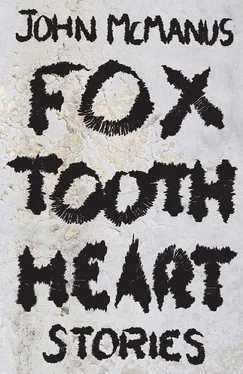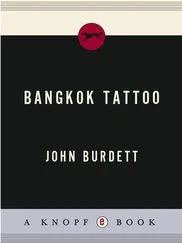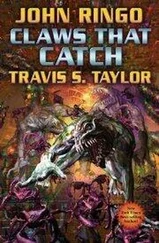John McManus - Fox Tooth Heart
Здесь есть возможность читать онлайн «John McManus - Fox Tooth Heart» весь текст электронной книги совершенно бесплатно (целиком полную версию без сокращений). В некоторых случаях можно слушать аудио, скачать через торрент в формате fb2 и присутствует краткое содержание. Жанр: Современная проза, на английском языке. Описание произведения, (предисловие) а так же отзывы посетителей доступны на портале библиотеки ЛибКат.
- Название:Fox Tooth Heart
- Автор:
- Жанр:
- Год:неизвестен
- ISBN:нет данных
- Рейтинг книги:3 / 5. Голосов: 1
-
Избранное:Добавить в избранное
- Отзывы:
-
Ваша оценка:
- 60
- 1
- 2
- 3
- 4
- 5
Fox Tooth Heart: краткое содержание, описание и аннотация
Предлагаем к чтению аннотацию, описание, краткое содержание или предисловие (зависит от того, что написал сам автор книги «Fox Tooth Heart»). Если вы не нашли необходимую информацию о книге — напишите в комментариях, мы постараемся отыскать её.
Fox Tooth Heart — читать онлайн бесплатно полную книгу (весь текст) целиком
Ниже представлен текст книги, разбитый по страницам. Система сохранения места последней прочитанной страницы, позволяет с удобством читать онлайн бесплатно книгу «Fox Tooth Heart», без необходимости каждый раз заново искать на чём Вы остановились. Поставьте закладку, и сможете в любой момент перейти на страницу, на которой закончили чтение.
Интервал:
Закладка:
One evening in January Gary kicked him out. In a near blackout Victor walked to the antique shop run by a man who winked at him in bars. His name was Ernest, and he moonlighted as a fashion photographer. “Of course I want you,” he said, so Victor spent the next days modeling for Ernest under vaulted ceilings replete with metal leaf. Ernest’s lurid stories of the merchant marine took place in every port from Manila to Marseilles. Victor listened carefully, planning to retell them as if they were his. For months, whenever he finished a bottle of scotch, Ernest would replace it. One humid day he overheard Ernest telling the phone, “Keep your hands off him if you know what’s good,” so it came as a surprise when he too banished Victor, kicking him out into the Marigny. But there were plenty of antique shops a boy like Victor could choose from.
Victor lived with James. He lived with Phillip. He lived with Ian and Timothy and Rufus. For short stints he worked as a waiter at high-end restaurants, intending to begin real work when he felt like it. He lived with Leroy, Bruce, Sebastian. Two bars banned him in one night. He developed prediabetes. He got his own apartment. The more fun he had, the more he blacked out. His cheeks grew gin blossoms. Hours after his aunt phoned to say his mother had died of ovarian cancer, he awoke without memory of that conversation. Sure, a foreboding anxiety gripped him, but that was typical of the hours prior to a first drink. He went to the Eagle and got wasted on hurricanes. In the darkroom he met a Cajun named Thierry and rode with him out to a fishing cabin on Bayou Dupont. That was where he smoked crystal for the first time. Time increased to lightning speed under phase after phase of the moon. At some point, convinced the pelicans floating on black water were spy cameras, he left for home, and crossed into the Sprint service area to discover the voicemails.
Soaking in a hot bath, Victor steeled himself to explain that he’d been away on an architectural commission in Central America. He was already so sober that he could hardly imagine speaking at all, let alone telling and then maintaining a complex lie. He’d missed the funeral anyway. Why bother, he thought as the water grew cold. He pulled up his aunt in his phone contacts and deleted the number. Then he collected the liquor bottles from every room and poured them out in the sink.
Late on that first sober day the liquid in him began trickling into his fingers to evaporate into the stale air. That was why his hands quivered the way they did. Soon his head throbbed, too, because his brain was bouncing around in the newly desiccated space. By sunset he was hallucinating that his couch was an exam table. On a nearby table lay his cancerous mother, awaiting news of who would live and who would not. He clenched his fists and kicked and turned, the ringing phone pitching him into further visions where Mary hung shackled to that wall he’d dreamt. Her presence there rendered the place horrific, a torture chamber, which he supposed it had always been. Desperate to be helped, he gripped the phone, but everyone fell into three untenable categories: alcoholics, relatives, and ex-boyfriends. He powered it off and watched a spy movie. After that one, another. During a commercial for beds, his shakes gave way to something worse.
“Tchoupitoulas Mattress Madness at Chuck’s Tchoupitoulas Mattress at 5300 Tchoupitoulas,” shouted the TV.
Hearing that garishly unparallel name repeated, Victor thought he might be suffering a heart attack. His breath tightened. It was as if he hadn’t outgrown his attacks at all. Then, as the man bellowed it all again, the ghastly, elegant truth struck Victor. Although he’d lived half his life near Tchoupitoulas Street, he’d always been drunk.
Half in nightmare already, he barely noticed his brain shutting off. He passed out cold. The next morning he awoke into a period he would think back on as a new, outsized childhood. Looking around at the squalor of his basement apartment he saw cobwebs in the corners, piles of garments, cluttered trash. He couldn’t take it; he shut his eyes again until he was too parched to lie still. He stood up to find water. Landing on his right foot, he stopped, sat down, rose again on the other side.
“Just a test,” he said aloud, as if his mother now spectated in heaven. He made a point of arriving on his right foot at the sink.
He gulped water and promised himself to clean the apartment, but as he scanned the room he saw there would be no way to scrub out its sheer lopsidedness. There were low ceilings, half-windows up to the street. If he was to remain sober, he would just have to suffer through it until he found a salaried job. How to do that, though, when everywhere he turned there was only ugliness: the phlegmy French names of the avenues and neighborhoods, his unclassically proportioned apartment, the Uptown bars where whole years had dwindled away, the men who lived in them, the names of liquors — Dewar’s — the name Gary, Gary’s white beard, Ernest’s gray one, the name Ernest, all of it so suddenly, viscerally nasty that he dreamt of a lobotomy just to soothe himself into a breath?
The prospect of AA meetings, where drunks would speak their names aloud and he would say, “I’m Victor,” gave Victor such apoplexy that he cut an index card to wallet size and listed
Blackouts
Drunk nose
Prediabetic
Fat
Unemployed
Barebacking
Reflux
Credit cards
Drunk driving
Shat pants
along with three more columns of dire reminders. Whenever he felt like drinking he took the card out and read it. After a week its edges were worn and he’d spoken only to store clerks. He wondered if he could have befriended anyone, ever, without liquor’s aid. Within minutes of his first drink, he’d made a first friend, and all other friends had derived from that one. There’d been a domino effect, he was thinking when a FedEx man arrived with an envelope from a Yazoo City probate court.
Of course, thought Victor as he tore into it: he was his mother’s next of kin. He skimmed through reams of papers. He would inherit the house, sell it, live off the income. Everything happens for a reason, he was telling himself when he read the executor’s name.
Now he fell into a vision. On the body of a strapping teenage Albert Alfsson, Victor saw a rheumy-eyed and hoary head. Floating near it was a disembodied hand, slapping him. He let the papers fall, and sat down. It wasn’t a pleasant vision. The quality of his sight was deteriorating, along with the fantasy itself. The old parts aged, the youthful ones regressed. Soon he beheld the aged infant Albert in the air before him. He didn’t faint, though. He sat still until his legs went to sleep. Finally he collected himself enough to stand up. He collected the papers, too, threw them into the trash, carried the trash out, came in again, locked the door, lowered the blinds, and lay down.
Law & Order proved most useful: twenty seasons, five hundred hours. It had mostly neutral names, disyllabic, Scots-Irish or English. Aside from his walks to the corner for DVDs and cigarettes, he stayed home ordering delivery. He watched the spin-offs, gaining weight. He watched The West Wing, Deadwood, 24 . When characters spoke words he didn’t like, or called each other by ugly names, his breath caught, but that was better than not watching. During Lost he struggled to button his jeans. By Six Feet Under he’d stopped wearing them except on cigarette runs. On the day his Visa card quit working, he was cinching his pant waist up with his left hand.
“Got another card?” the clerk asked Victor, but his wallet was in his left pocket. His right hand held the pen, ready to sign a receipt.
Читать дальшеИнтервал:
Закладка:
Похожие книги на «Fox Tooth Heart»
Представляем Вашему вниманию похожие книги на «Fox Tooth Heart» списком для выбора. Мы отобрали схожую по названию и смыслу литературу в надежде предоставить читателям больше вариантов отыскать новые, интересные, ещё непрочитанные произведения.
Обсуждение, отзывы о книге «Fox Tooth Heart» и просто собственные мнения читателей. Оставьте ваши комментарии, напишите, что Вы думаете о произведении, его смысле или главных героях. Укажите что конкретно понравилось, а что нет, и почему Вы так считаете.












